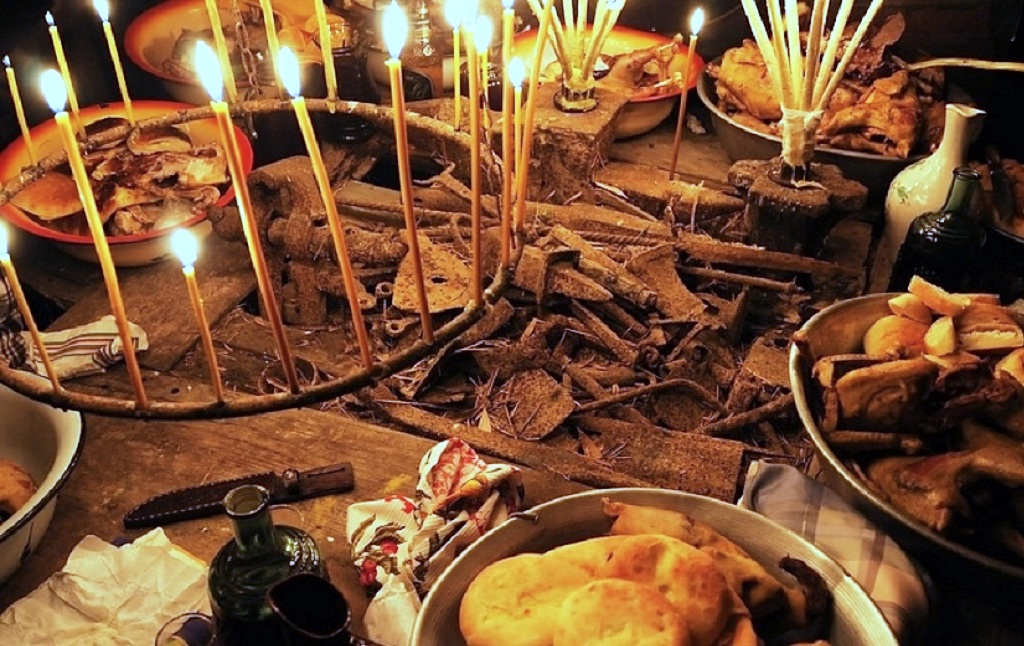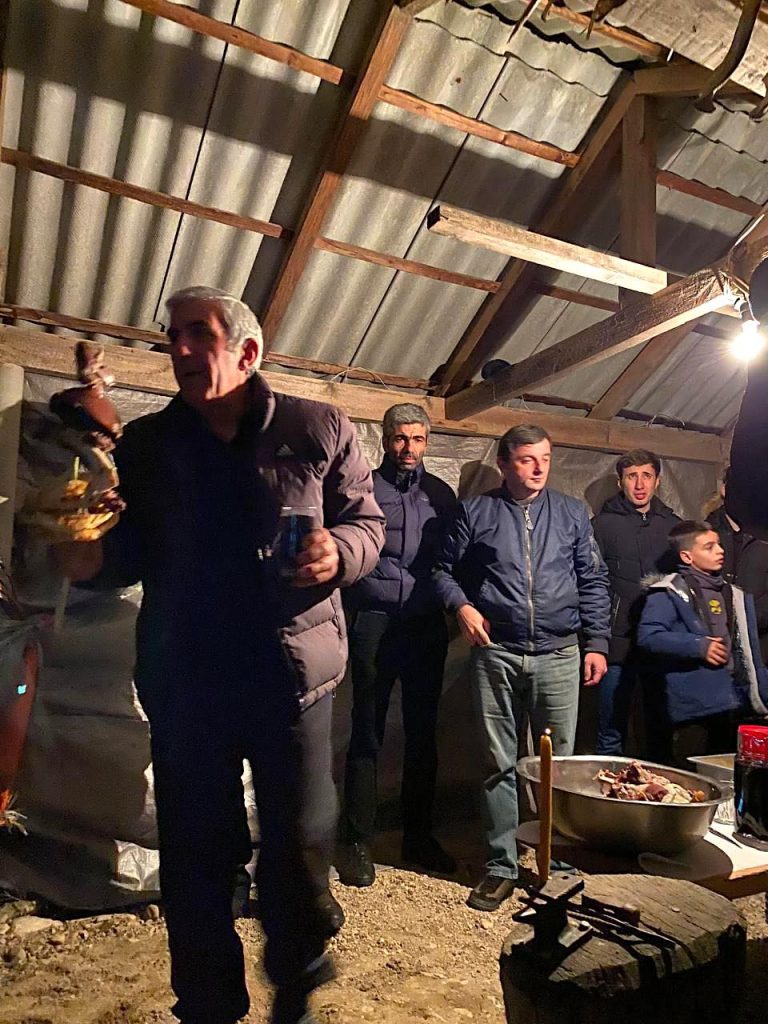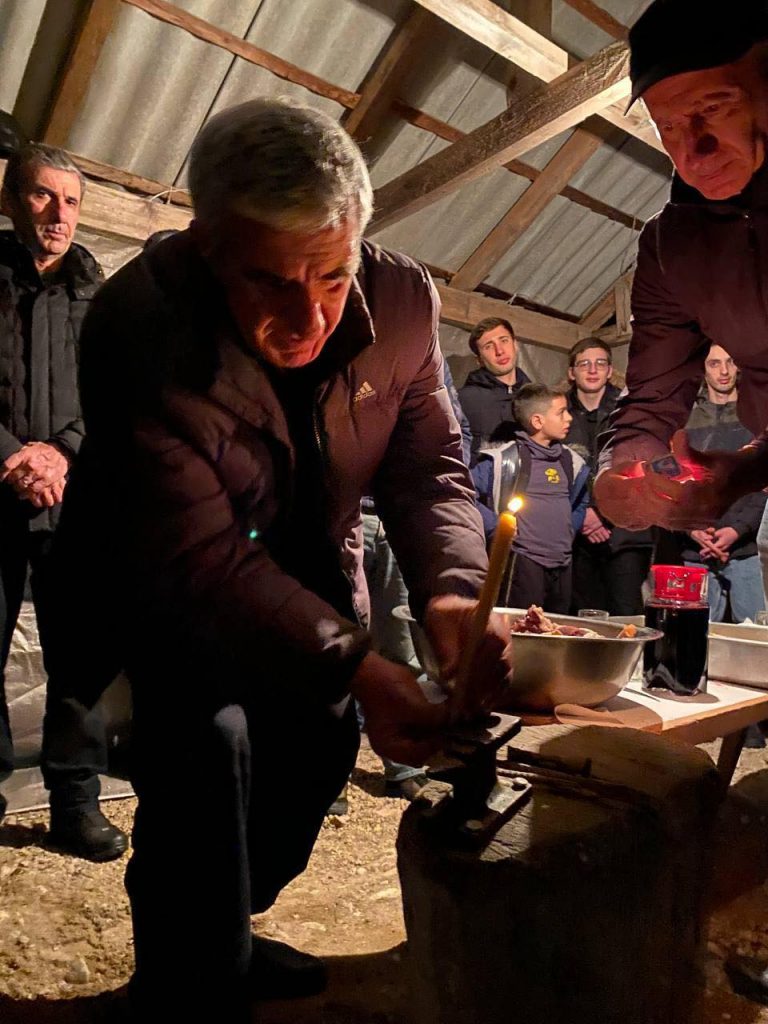Abkhazia’s Azhyrnykhua – day of creation
January 14 in the Abkhaz calendar is an official day off. But not because it is the Old New Year, popular in the post-Soviet space (New Year according to the ‘old style’, according to the Julian calendar).
In Abkhazia, it is also a pagan Azhyrnykhua – which is translated as ‘Forge Holiday’, the holiday of the creation (or renewal) of the world.

“There are Christians, Muslims and atheists in my family. But this does not prevent all of us from celebrating Azhyrnykhua together in our ancestral hearth.
Every January 13 (and this is no exception), in the morning, having loaded all my household members into a car, I go to the village of Huap. There, at the foot of the mountains, is the house where my father was born, and now my cousin Aslan lives.
I travel along the road very quickly and I usually come to the family nest first. Soon, within an hour, others will follow. We’ll get some rest from the road and start preparing for the celebration.
But this time not everyone succeeded in doing it. For several days before the holiday, the old-timers of the clan conducted regular telephone consultations about how to celebrate the holiday in a pandemic, and, accordingly, in what composition.
The result of the consultations was the decision not to disturb and leave elderly people at home. In addition, all those who were not sure about the cleanliness of their contacts had previously passed tests for coronavirus and only with a negative result would they be able to come to the house.
In general, several people did not fit into the sanitary and epidemiological standards. But with the help of gadgets, they could see what was happening in a live broadcast.
Alas, this time we were out of luck with the weather. It started raining in the morning, although usually there is snow in Huap on this day. But nowadays snow is very rare in Abkhazia. It lies only high in the mountains. And we had to spend most of the preparatory work in the rain.
There is no single standard for celebrating Zhyrnykhua. Each family has its own traditions. But they are connected with one circumstance – the presence or absence of Ajyira (holy forge) in the family nest.
Why a smithy?
I can only guess – when they moved from the Stone Age to the Bronze Age, the owner of iron was considered a cool guy.
And the one who created tools and weapons from this was also close to the celestials. Becoming a blacksmith in the old days was considered a great achievement for a person and pride for his family.
In my family, there is such a smithy, and accordingly, the ritual of celebration is carried out in full.
On this day, we certainly sacrifice a bull, and we also butchered chickens – as many as there are women in the family.
While the men are engaged in meat and cooking in a large cauldron, women bake pies with cheese and nuts, girls clean the house and yard and setting the tables.

It is not customary to tell someone what to do – everyone already knows their responsibilities.
I know them too. There is not much from me in cutting meat.
Therefore, I devote all my energy to making candles. I need a couple of hours to mold one large candle from a large piece of wax for Ajyira and a dozen and a half smaller candles – one candle for a woman or girl in the family.
Yes, I almost forgot. In addition to the candles, I need to carve a pin out of a nut branch. This is a very important detail, I will discuss it below.
When all the preparations are already over and twilight falls on the village, the main procedure of the whole festival begins – the trip of the male part of the family to Azhira. It is located in the garden.
In addition to men, girls are also present in the prayer service as an exception.

The owner of the house, Aslan, has been our family priest for two years now. It is he who is empowered to turn to the Almighty for the patronage of our family.
In addition, Aslan will ask for peace and prosperity for the family, people and inhabitants of the whole earth.
And in return, as a family priest, he undertakes to live correctly for the whole family – according to conscience.
Naturally, this time the standard request to God could not but be supplemented with a small addition: “For COVID-19 to get out of this world as soon as possible.”
A year ago, they did not even know a word like this, but here even the most conservative members of the kind of thought did not even allow deciphering the naturalness of the addition.
In his left hand, Aslan will hold a nutty pin that I have carved, into which, in a certain ritual order, will be strung several pies, the heart and liver of the sacrificial bull, and in his right hand a glass of wine.
After the main toast has been pronounced, other members of the clan do the same for Aslan. Naturally, the younger the toast is, the shorter his speech.
Until the turn came to Danat – the smallest representative of our family, all the most important has already been said. And he just had to say “Chaanybziala!” (happy New Year!). The next toasts take place in a more familiar atmosphere, when the toast drinks to the bottom.
They drink for the Motherland, for the people, for the elders, for the children. Events under the roof of the forge take no more than an hour. When leaving Azhira, it is customary to shoot into the air with a gun, and more recently to launch fireworks.
But this time, due to the difficult situation with the pandemic, when about 150 people have already died from the coronavirus in small Abkhazia, it was initially decided not to fire the festive salvo.

With the return to the house, the ritual part of the prayer service did not end. It will continue under a large canopy of the house, where Aslan is supposed to duplicate what he said in Ajyir to the women of our family.
All of them, lined up with their daughters, will stand with lighted candles at a table filled with a ritual set of uncut chicken meat and pies. After each personal toast, these candles in turn will be attached to the wall of the house, where they will burn out at the end. And after that the feast will begin.
Patriarchal traditions are still strong in our family, so men and women will feast separately – men will sit in one room and women in another. However, no one has ever complained about this order of things. And the present feast was long and cheerful.


















